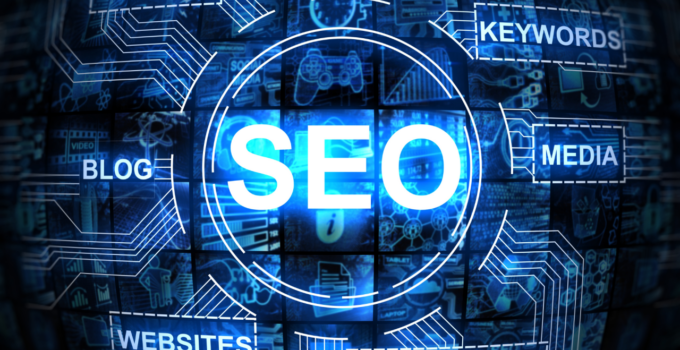In today’s digital landscape, search engine optimization (SEO) is no longer just about keywords, meta tags, and backlinks. The emergence of artificial intelligence (AI) has revolutionized how businesses approach SEO, presenting both challenges and opportunities. As AI continues to shape search engine algorithms and modify user behaviors, it’s essential for marketers to adapt their online strategies accordingly. In this article, we’ll explore the importance of SEO in an AI-driven world and provide actionable insights on how businesses like yours can navigate this rapidly expanding landscape to achieve marketing success.
Page Contents
What is AI’s Relationship with SEO?
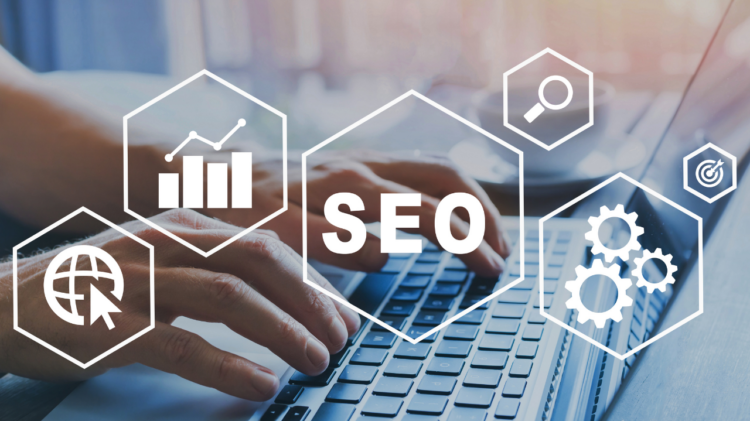
Source: media.licdn.com
AI has become increasingly integrated into search engine algorithms, influencing how websites are ranked and displayed in search results. Search engines, like Google & Bing, use AI-driven technologies such as machine learning and natural language processing to understand user queries and deliver more relevant results. This means that traditional SEO tactics must evolve to align with the changing algorithms and user expectations.
AI’s role in SEO goes beyond mere keyword research and content development; it delves into the semantics of search queries, deciphering user intent and delivering highly personalized search results. For instance, AI-powered search engines can understand complex search queries, interpret context, and provide more accurate and relevant answers, leading to improved user satisfaction. Moreover, AI algorithms continuously learn and adapt based on user interactions, refining search results over time to better align with user preferences and behaviors.
Strategies for Optimizing SEO in an AI-Driven World
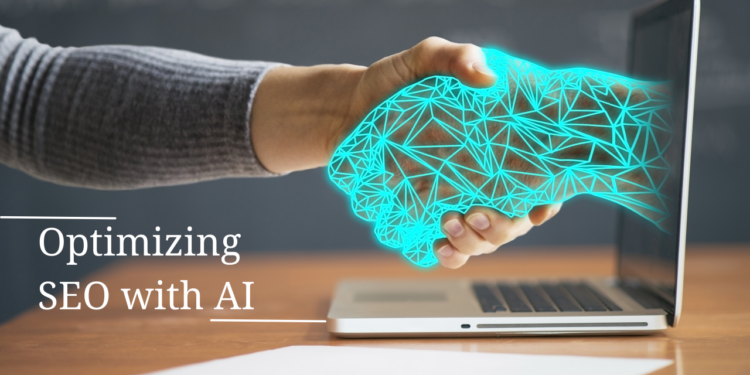
Source: media.licdn.com
In an AI-driven world, optimizing SEO requires a strategic approach that aligns with the evolving landscape of search engine algorithms and user behaviors. One key strategy to note is leveraging AI-powered tools and technologies to analyze data and gain insights into user intent and preferences. By understanding these patterns, businesses can create highly targeted and personalized content that resonates with their audience, thereby improving engagement and conversion rates.
Putting the user first allows businesses to develop structured content in a way that answers common questions and employs conversational language can help websites rank higher in voice search results. Furthermore, staying updated on AI advancements and algorithm changes is crucial for adapting SEO strategies effectively. By continuously monitoring performance metrics and adjusting tactics accordingly, businesses can stay competitive and maximize their visibility in search engine results pages.
1. Content Optimization
In the AI era, content remains king. However, it’s no longer enough to simply churn out keyword-stuffed articles in attempt of better rankings. Instead, businesses should focus on creating high-quality, engaging content that provides value to users. Google emphasizes E-E-A-T content to provide the utmost value to your audience. Being able to craft high-quality content will ultimately help resonate with your users and boost your overall search engine performance. AI-powered content analysis tools can help identify topics and keywords that resonate with your target audience, allowing you to craft content that ranks well in search results.
2. User Experience Optimization
User experience (UX) plays a crucial role in SEO, and AI is driving a momentous shift towards more personalized and intuitive experiences. Businesses engaged in digital marketing efforts should prioritize mobile optimization, site speed, and intuitive navigation to ensure a seamless user experience. A seamless and intuitive UX not only enhances website performance but also boosts search engine visibility and rankings, driving organic traffic and conversions. Leveraging AI tools can provide insights into user behavior and preferences, giving businesses better insights to optimize their websites accordingly.
3. Voice Search Optimization
With the rise of voice-enabled devices like smartphones and smart speakers (A-L-E-X-A), voice search has become increasingly prevalent. Optimizing for voice search requires a more unique and different approach than traditional SEO, as users tend to use more conversational language. Businesses should focus on answering questions directly, optimizing for long-tail keywords, and providing concise and relevant answers to user queries. Not to mention, the significance of getting a featured snippet that will be retorted out loud by your smart device.
4. Schema Markup Implementation
On the more technical side of SEO, schema markup is a form of structured data that helps search engines understand the content of a webpage. By implementing schema markup, businesses can enhance their visibility in search results and provide richer snippets that attract more clicks. AI tools can assist with schema markup implementation, making it easier to markup content and improve search engine visibility by providing search engines a more robust overview of your webpage.
5. AI-Powered SEO Analysis
AI-powered SEO tools can provide valuable insights into keyword performance, competitor analysis, and content optimization. These tools use machine learning algorithms to analyze vast amounts of data and provide actionable recommendations for improving SEO performance. By leveraging AI-powered analytics tools, businesses can gain a competitive edge and stay ahead of the curve in the ever-changing SEO landscape.
How Does SEO Benefit from AI?
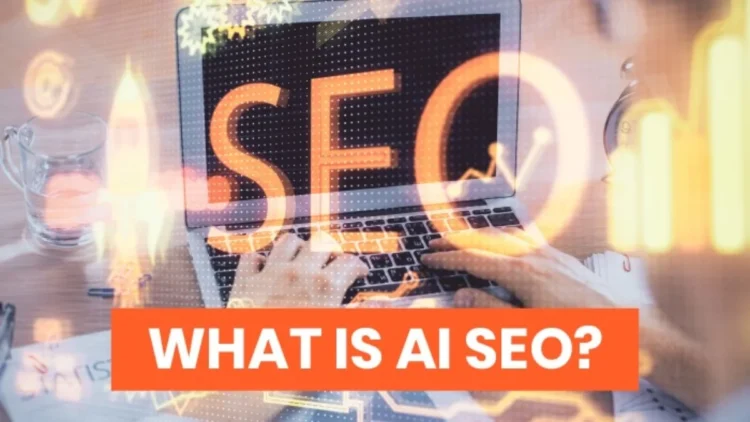
Source: neilpatel.com
Artificial Intelligence brings a multitude of benefits to the realm of SEO by revolutionizing how search engines understand, interpret, and rank content. With AI-powered algorithms, search engines can quickly and efficiently analyze vast amounts of data in real-time, enabling more accurate and relevant search results for users. Additionally, AI enhances the effectiveness of SEO strategies by providing insights into user intent, preferences, and behavior, allowing marketers to tailor their content and optimization efforts accordingly.
Through AI-driven automation and predictive analytics, SEO professionals can streamline processes, identify trends, and adapt strategies quickly to stay ahead in the ever-evolving digital landscape. Overall, AI empowers businesses to optimize their online presence more effectively, drive organic traffic, and achieve sustainable growth in the competitive digital marketplace.
Time to Shift to an AI-Driven World
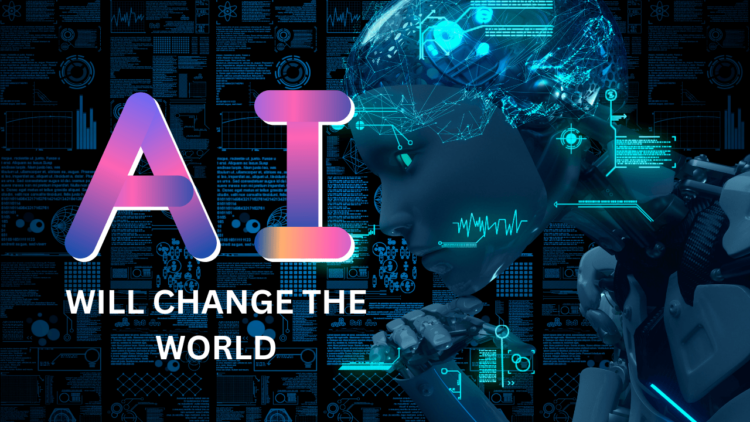
Source: markzides.com
As AI continues to reshape and revolutionize the digital marketing world, businesses must adapt their SEO strategies to remain competitive. No longer is this a luxury, but more a necessity. By embracing AI-powered technologies and adopting a data-driven approach to SEO, businesses can enhance their online visibility, attract more traffic, and drive meaningful results. With the right strategies in place, businesses can navigate the complexities of SEO in an AI-driven world and achieve long-term success.

